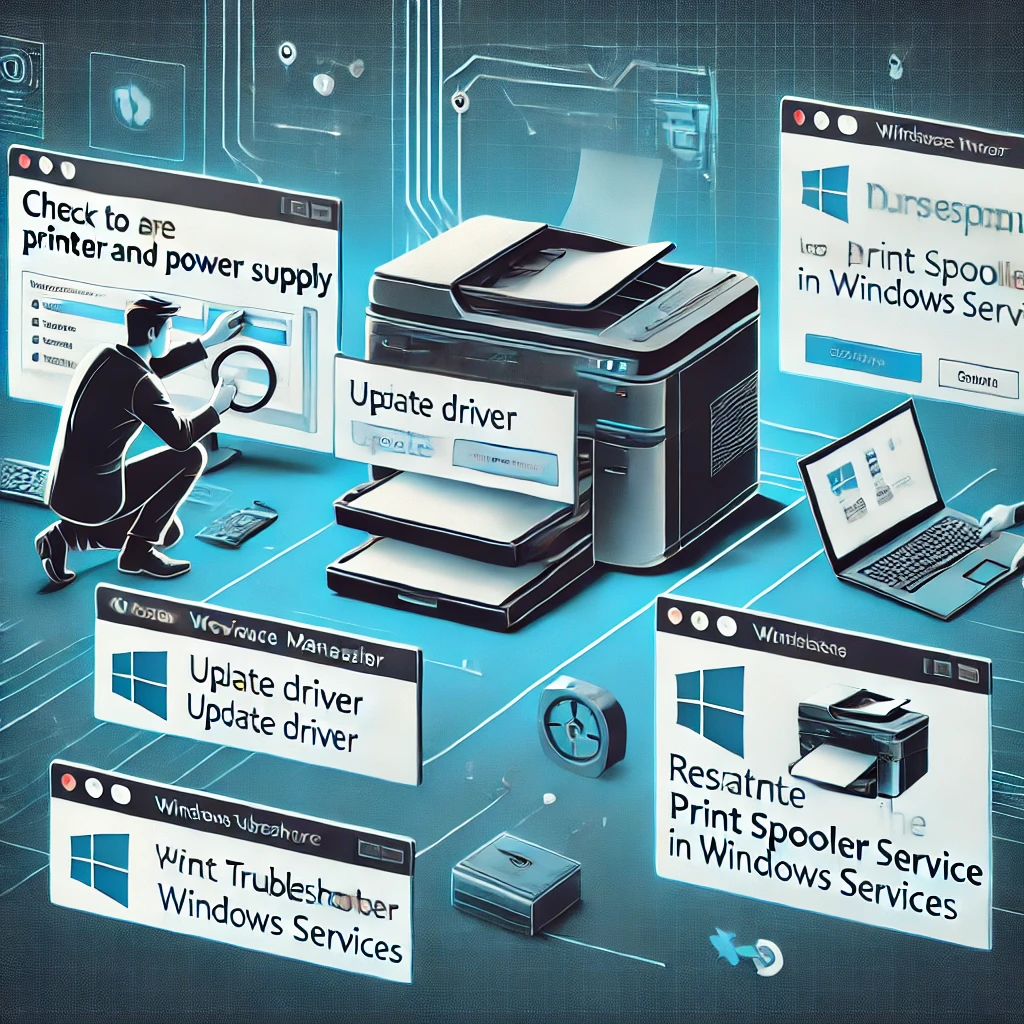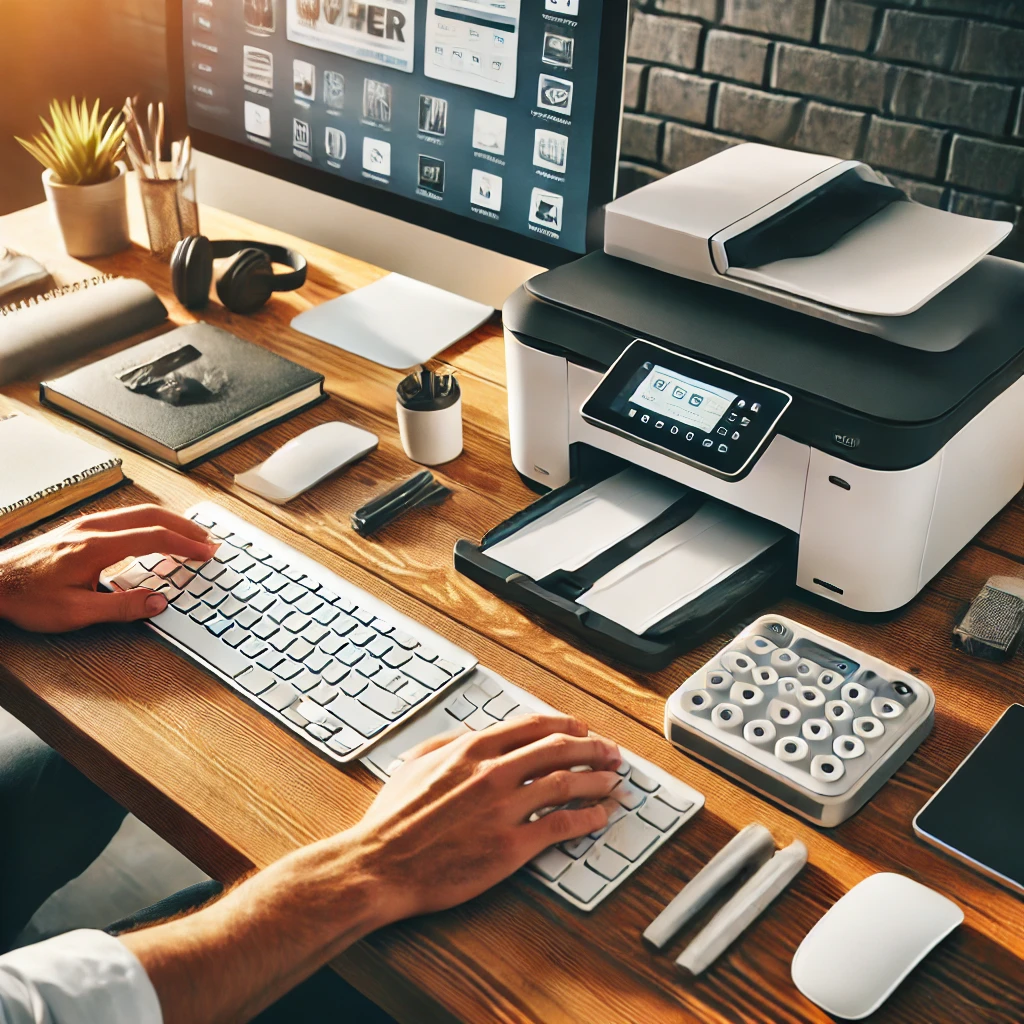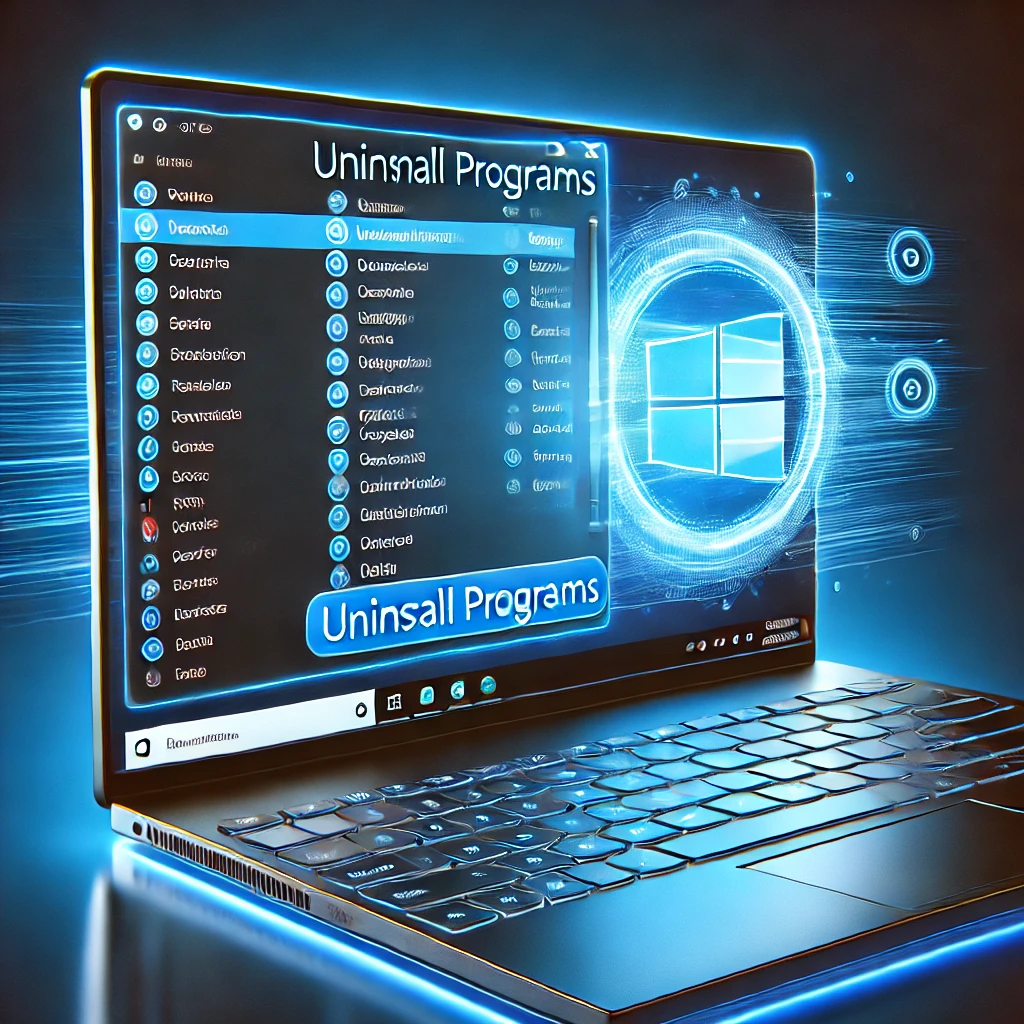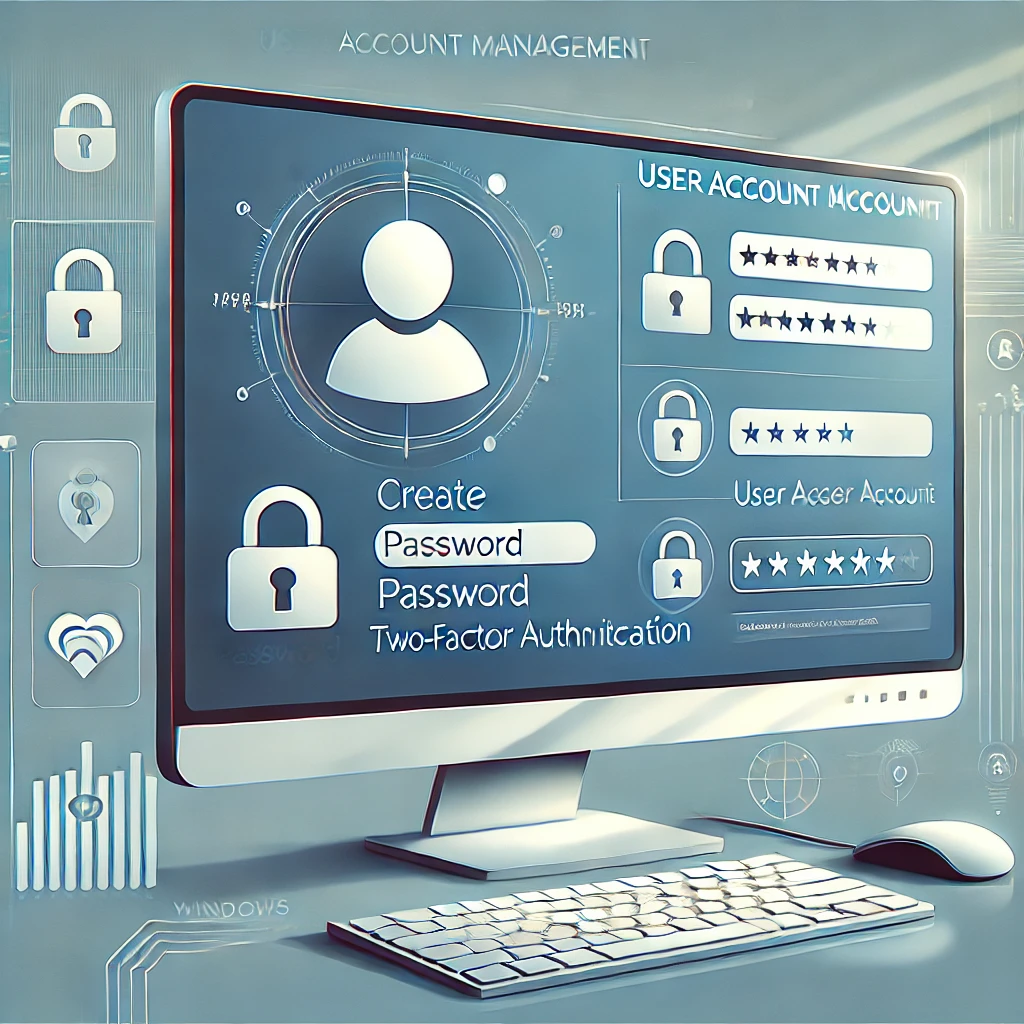When your printer or peripheral device (keyboard, mouse, USB drive, scanner, external monitor, etc.) stops responding, it can disrupt your work and become a major frustration. Fortunately, most issues can be resolved with systematic troubleshooting.
This guide provides an in-depth, step-by-step approach to diagnosing and fixing unresponsive printers and peripherals on Windows PCs.
🔹 Why is My Printer or Peripheral Not Responding?
Before diving into fixes, let’s explore the possible causes:
1️⃣ Hardware Connection Issues
🔹 Loose or damaged USB cables
🔹 Faulty power cables or adapters
🔹 Broken or malfunctioning USB ports
2️⃣ Driver and Software Problems
🔹 Corrupt or outdated drivers
🔹 Incompatible software updates
🔹 Windows not recognizing the device
3️⃣ Power and Energy-Saving Settings
🔹 The device is in sleep mode or turned off
🔹 Windows is disabling USB ports to save power
4️⃣ System and Network Issues
🔹 Windows update conflicts
🔹 Network issues (for wireless printers or devices)
🔹 Device conflicts with other hardware
Now that we know the possible causes, let’s fix them!
🔹 Quick Troubleshooting Steps
Before moving to advanced fixes, try these simple solutions:
✅ Restart your computer and the device
✅ Reconnect all cables and check for damage
✅ Try a different USB port
✅ Ensure the device is powered on
✅ If it’s a wireless device, check Wi-Fi or Bluetooth
Still not working? Let’s get into detailed solutions.
🔹 Solution 1: Check & Secure Physical Connections
For Wired Devices:
🔹 Unplug and reinsert the device into another USB port.
🔹 Try using a different USB cable.
🔹 If using a USB hub, plug the device directly into the PC.
For Wireless Devices:
🔹 Ensure Wi-Fi or Bluetooth is turned on.
🔹 Move the device closer to your PC.
🔹 Restart your router if it’s a network printer.
🔹 Solution 2: Run Windows Troubleshooter
Windows has built-in troubleshooting tools for printers and hardware.
For Printers:
1️⃣ Open Settings (Win + I) → Devices → Printers & Scanners.
2️⃣ Select your printer → Click Manage → Run the Troubleshooter.
3️⃣ Follow on-screen instructions to detect and fix issues.
For Other Devices:
1️⃣ Open Settings → Update & Security → Troubleshoot.
2️⃣ Select Hardware and Devices → Run the Troubleshooter.
🔹 Solution 3: Update or Reinstall Drivers
Corrupt or outdated drivers can cause devices to stop responding.
How to Update Drivers:
1️⃣ Press Win + X → Click Device Manager.
2️⃣ Find the device (e.g., printer, keyboard, scanner).
3️⃣ Right-click it → Click Update driver.
4️⃣ Choose Search automatically for drivers.
If Updating Doesn’t Work, Reinstall the Driver:
1️⃣ Right-click the device in Device Manager.
2️⃣ Click Uninstall Device and restart your PC.
3️⃣ Windows will reinstall the driver automatically.
🔹 Solution 4: Restart Print Spooler (For Printers)
The Print Spooler service manages printer tasks and can sometimes freeze.
Steps to Restart the Print Spooler:
1️⃣ Press Win + R, type services.msc, and press Enter.
2️⃣ Find Print Spooler → Right-click and select Restart.
3️⃣ Close the window and try printing again.
🔹 Solution 5: Check USB Power Management Settings
Windows automatically disables idle USB ports to save power, which can cause devices to stop responding.
Steps to Disable USB Power Saving:
1️⃣ Open Device Manager (Win + X → Device Manager).
2️⃣ Expand Universal Serial Bus controllers.
3️⃣ Right-click USB Root Hub → Select Properties.
4️⃣ Click the Power Management tab.
5️⃣ Uncheck Allow the computer to turn off this device to save power.
6️⃣ Click OK and restart your PC.
🔹 Solution 6: Check & Reset Device Settings
Incorrect settings can cause unresponsiveness.
For Printers:
1️⃣ Open Settings → Devices → Printers & Scanners.
2️⃣ Select your printer → Click Manage.
3️⃣ Click Print a Test Page.
4️⃣ If it doesn’t work, remove and re-add the printer.
For Other Peripherals:
1️⃣ Open Control Panel → Devices and Printers.
2️⃣ Right-click the device → Select Properties.
3️⃣ Check the device status and settings.
🔹 Solution 7: Boot into Safe Mode
Safe Mode helps diagnose if third-party apps are causing conflicts.
How to Boot into Safe Mode:
1️⃣ Press Win + R, type msconfig, and hit Enter.
2️⃣ Go to the Boot tab → Check Safe boot → Click OK.
3️⃣ Restart your PC and test the device.
If it works in Safe Mode, a recently installed app might be causing the problem. Uninstall it.
🔹 Solution 8: Check for Windows Updates
Microsoft regularly releases updates to fix device compatibility issues.
Steps to Update Windows:
1️⃣ Open Settings → Update & Security → Windows Update.
2️⃣ Click Check for updates and install any available updates.
3️⃣ Restart your PC after the update.
🔹 Solution 9: Reset the Printer or Device
If all else fails, resetting the device to factory settings may help.
For Printers:
1️⃣ Open Settings → Devices → Printers & Scanners.
2️⃣ Select your printer → Click Remove device.
3️⃣ Restart your PC and re-add the printer.
For Other Peripherals:
Consult the manufacturer’s manual or website for reset instructions.
🔹 Solution 10: Try a Different Computer
Still having issues? Test the device on another PC.
✔ If the device works on another PC, your system might have software issues.
✔ If it doesn’t work on another PC, the device may be faulty.
🔹 Final Thoughts
Fixing an unresponsive printer or peripheral can be frustrating, but with these detailed 10 solutions, you should be able to resolve the issue effectively.
📝 Quick Recap:
✅ Check cables, power supply, and ports.
✅ Run Windows Troubleshooter.
✅ Update or reinstall device drivers.
✅ Restart Print Spooler (for printers).
✅ Disable USB power-saving settings.
✅ Check device settings and Safe Mode.
✅ Install Windows updates.
✅ Reset the device or test on another PC.
💬 Did this guide help you? Let us know in the comments! 😊
🔹 You May Like :
🔗 How to Solve Unresponsive Programs issues of Computer
🔗 Windows User Accounts: How to Setup, Security & Control
🔗 How to Fix Internet Connection Issues on Any Device
![]()






One thought on “How to Fix Unresponsive Printer or Peripheral on PC”